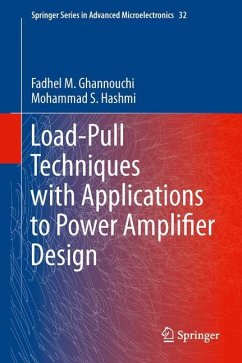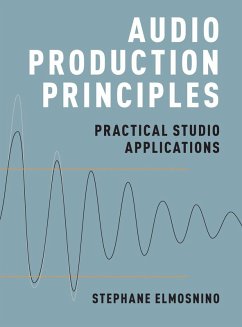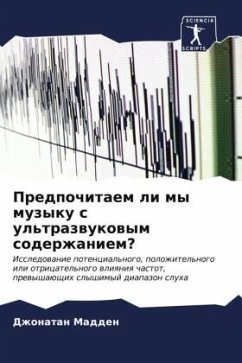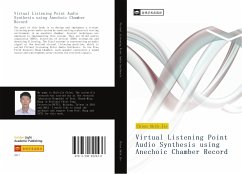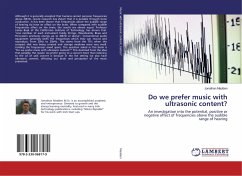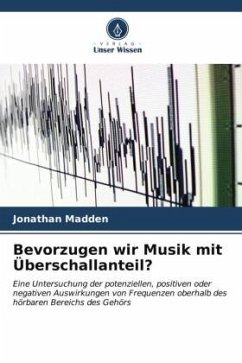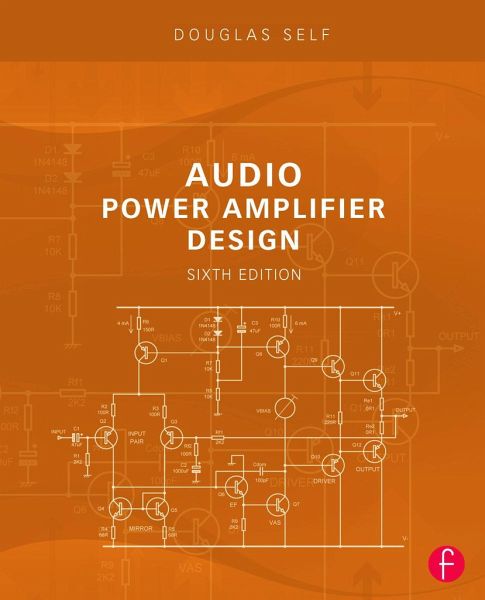
Audio Power Amplifier Design
Versandkostenfrei!
Versandfertig in 6-10 Tagen
72,99 €
inkl. MwSt.
Weitere Ausgaben:

PAYBACK Punkte
36 °P sammeln!
This is the essential book reference for amplifier designers. Douglas Self covers all the design issues of noise, distortion, power supply rejection, protection, reliability, and layout. He describes advanced forms of compensation that give dramatically lower distortion.This edition is much expanded, and packed with new information. It is a must-have for audio power amplifier professionals and audiophiles, amateur constructors and anyone with intellectual curiosity about the struggle towards technical excellence.New to the sixth edition:The characteristics of the audio signalThe principles of ...
This is the essential book reference for amplifier designers. Douglas Self covers all the design issues of noise, distortion, power supply rejection, protection, reliability, and layout. He describes advanced forms of compensation that give dramatically lower distortion.
This edition is much expanded, and packed with new information. It is a must-have for audio power amplifier professionals and audiophiles, amateur constructors and anyone with intellectual curiosity about the struggle towards technical excellence.
New to the sixth edition:
The characteristics of the audio signal
The principles of distortion
Feedback intermodulation distortion
Non-switching output stages
VAS distortion explained
Push-pull VAS configurations
Output-inclusive compensation
In addition, five amplifier design examples that illustrate important design principles areexamined and measured in detail. These can be straightforwardly adapted to specific requirements.
This new edition also includes a wealth of material on the XD crossover-displacement principle (invented by the author and in use by Cambridge Audio), four-stage amplifier architectures, error correction, current-mirrors, power transistors with internal sensing diodes, amplifier bridging, input-stage-common-mode distortion, amplifier stability, output stages with gain, inrush current suppression, DC servo design, thermal protection, cooling fan control, advanced line input stages, testing and safety, infrared remote control, signal activation, 12V trigger control, the history of solid-state amplifiers and much more. Simple procedures for heatsinking and power supply design are given.
This edition is much expanded, and packed with new information. It is a must-have for audio power amplifier professionals and audiophiles, amateur constructors and anyone with intellectual curiosity about the struggle towards technical excellence.
New to the sixth edition:
The characteristics of the audio signal
The principles of distortion
Feedback intermodulation distortion
Non-switching output stages
VAS distortion explained
Push-pull VAS configurations
Output-inclusive compensation
In addition, five amplifier design examples that illustrate important design principles areexamined and measured in detail. These can be straightforwardly adapted to specific requirements.
This new edition also includes a wealth of material on the XD crossover-displacement principle (invented by the author and in use by Cambridge Audio), four-stage amplifier architectures, error correction, current-mirrors, power transistors with internal sensing diodes, amplifier bridging, input-stage-common-mode distortion, amplifier stability, output stages with gain, inrush current suppression, DC servo design, thermal protection, cooling fan control, advanced line input stages, testing and safety, infrared remote control, signal activation, 12V trigger control, the history of solid-state amplifiers and much more. Simple procedures for heatsinking and power supply design are given.





